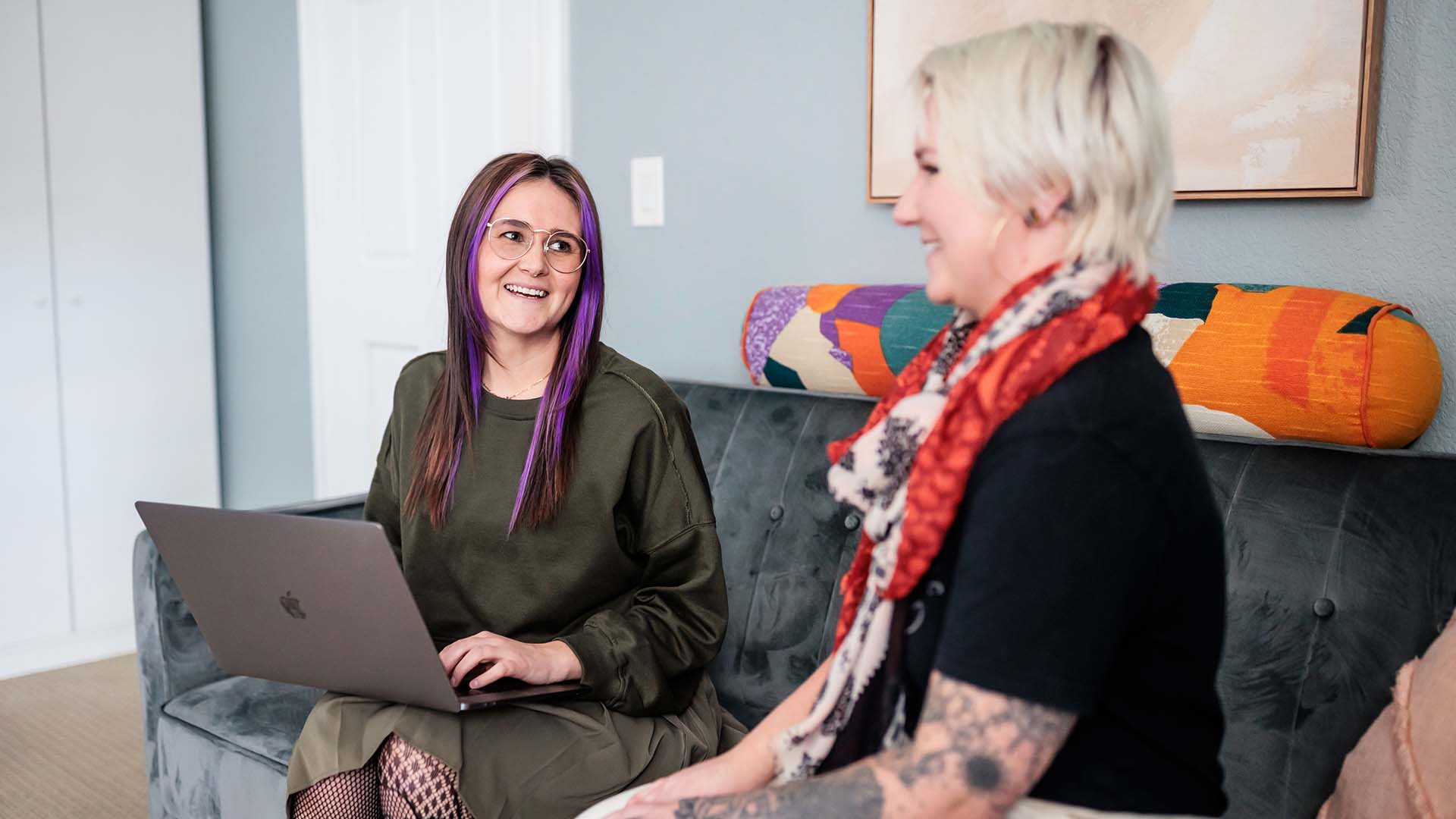COVID-19 pandemic adds complexities to domestic violence in Colorado
At the beginning of national Domestic Violence Awareness Month, experts and victim advocates fear a surge in reports of interpersonal violence.

What interpersonal-violence expert Katherine Miller wasn’t hearing last spring concerned her.
At the height of Colorado’s COVID-19 lockdowns, the advocacy-service program manager at the Phoenix Center at Auraria, which serves survivors of interpersonal violence, was receiving fewer reports than usual.
As Coloradans adjust to the pandemic’s new normal and restrictions are lifted, however, the Phoenix Center is seeing a surge in domestic-violence reports. Moving into October, national Domestic Violence Awareness Month, Miller is sounding the alarm that Colorado could soon see a record number of cases.
“Right now, there are still individuals experiencing violence who won’t reach out until it’s safer for them to do so,” said Miller, a Metropolitan State University of Denver alumna and affiliate faculty member in the University’s Gender Institute for Teaching and Advocacy. “I predict that once we start to see a return to normalcy, we’ll see cases in record numbers.”
Data and anecdotal evidence that the Phoenix Center, other interpersonal-violence organizations and MSU Denver experts are analyzing underscores the degree to which the COVID-19 pandemic is adding new complexities to incidents of domestic violence in Colorado and across the country.
The pandemic is adding new stress to our lives while simultaneously taking away our traditional releases, such as having a drink with friends or seeing a movie, said Randi Smith, Ph.D., professor of psychological sciences at MSU Denver.
“Add to that mounting economic stress, political unrest, health concerns and general uncertainty about the future,” she said, “and you’ve got a recipe for despair.”
|
Resources for victims of interpersonal violence Anybody who has experienced or been impacted by interpersonal violence and is in need of support should reach out to the numerous Colorado organizations dedicated to assisting victims of domestic violence, Miller said. The Phoenix Center at Auraria’s services are free to students, faculty and staff. The center is open during the pandemic – staffed Monday through Thursday – and its 24/7 hotline is 303-556-2255. Appointments can be scheduled at thepca.org. If you are in a crisis or need immediate help, dial 911 or call the National Domestic Violence hotline: 800-799-SAFE (7233) or TTY 800-787-3224.
|
|
Nowhere to go
A major problem presented by the pandemic is the degree to which it has reduced victims’ access to safe places.
Packing a schedule with work and school is one way victims of interpersonal violence avoid being home with their abuser, Miller said.
“Being home constantly – particularly at the beginning of the pandemic – didn’t allow for any reprieve from the violence,” she said.
And the danger to victims rises significantly when victims decide to leave their abuser without a safe place to go, said Denise Mowder, J.D., Ph.D., MSU Denver professor of criminal justice and criminology.
“That’s why COVID has been so dangerous for these victims,” she said. “They’re never alone, thus there’s never an opportunity to leave.”
Leaving a violent relationship is one of the most dangerous times for victims, Miller said.
“Fatalities increase significantly, up to five times for women,” she said. “It takes careful, strategic planning, and sometimes that plan develops over years.”
A common question from friends and families of victims is, “How can we make (the victim) leave?” Miller said.
It’s critical that those concerned parties remember that survivors are the experts of their own experiences, she said.
“(Victims) are constantly making difficult decisions regarding their safety and well-being,” Miller said. “They’re trying to survive.”
Having a safety plan in place is a good step, along with advising family and friends to be patient and supportive, said Annie Butler, a professor and director of the Center for High Risk Youth Studies.
“A survivor is often not ready to leave when others think they should,” she said.
Control issues
Like the Phoenix Center, Violence Free Colorado, a nonprofit that fights domestic violence, reports an uptick in calls for shelter requests. Even before the pandemic, though, the National Coalition Against Domestic Violence reported that 32.7% of Colorado women and 28.6% of Colorado men had experienced intimate-partner violence.
Such violence is complex and often revolves around issues of power and control, experts said.
Intimate-partner violence is about one person getting what they want from another by use of control, said Mowder. The control starts small, with name-calling and demeaning behavior, and increases if the batterer feels he or she is losing control.
“When these small controlling behaviors stop working, then the violence ratchets up,” she said.







